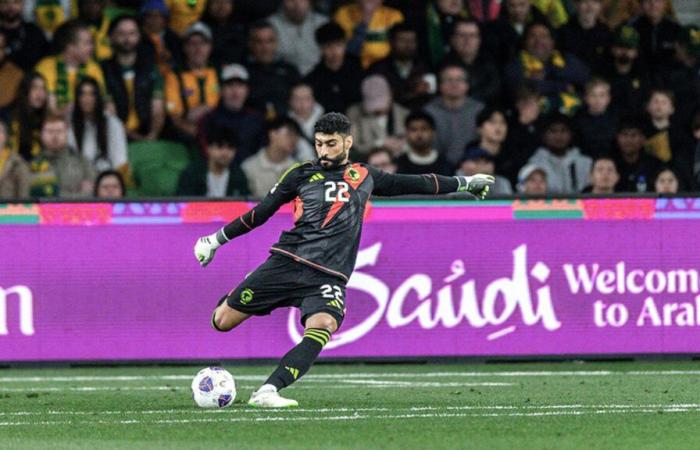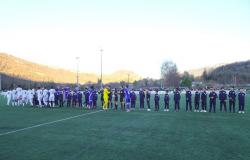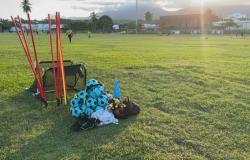The 2034 World Cup in Saudi Arabia: a sham election, no date yet and megalomaniac stadiums
In the absence of opposing candidates, official approval later today will only be a formality: Saudi Arabia will receive the World Cup in 2034. Why does FIFA choose the controversial candidacy? Will we get a repeat of Qatar 2022? When will Football be played and in which stadiums? We answer the questions in this article.
Why is Saudi Arabia winning the 2034 World Cup?
It can safely be called a sham election. Saudi Arabia will today be awarded the 2034 World Cup, but there was actually no classic bidding and voting procedure.
The world football association FIFA has virtually checkmated potential dissident voices with a few tricks. It did this by more or less linking this allocation to that of the 2030 FIFA World Cup.
Spain, Portugal and Morocco will be the hosts in 6 years, but the first matches of that World Cup will actually be played in Argentina, Paraguay and Uruguay.
With the South American prologue, FIFA says it is celebrating the centenary of the World Cup, but since a continent is not allowed to organize consecutive editions, most of the possible candidates have already been counted out.
With an unexpected emergency procedure for the 2034 bid book, any initiatives from Australia, for example, were also silenced. The result: the green light will soon be given at the FIFA online conference – a first -.
Related:
Will it be different from the much criticized 2022 World Cup in Qatar?
To put it with an understatement: skepticism is also sky-high for Saudi Arabia and accusations are raining down. The country has an extremely questionable reputation when it comes to human rights.
The controversy in Qatar and the lack of answers and solutions are an example that people do not want to see echoed in Saudi Arabia.
Who will build the stadiums and who will be responsible for the other infrastructure? Think of roads and other transport facilities, hotels and airports. In what conditions will these guest workers work and to what extent are they protected?
According to Human Rights Watch, 40 percent of Saudi Arabia’s population consists of migrant workers (mainly from Bangladesh, India and Pakistan).
Human rights organizations are calling on FIFA to establish a legal framework for the rights of migrant workers and women and to guarantee press freedom.
FIFA itself drew up a favorable report on the candidacy, which was rewarded with a score of 419.8 out of 500 points. “It is important to note that this candidacy also offers many opportunities for human rights in Saudi Arabia,” it said. Risks are rated as “medium”.
According to the World Football Association, the World Cup in Qatar also had positive afterburners with the introduction of a minimum salary and other adjustments.
Related:
How does the Belgian Football Association view the World Cup?
The 211 FIFA members will argue that they had no freedom of movement to vote against. But is that true? Member states can make a statement. For example, the Dutch Football Association is said to be considering a symbolic censure. Belgium does not do that.
“We understand the concerns surrounding the human rights situation and working conditions for the 2034 World Cup,” the Belgian Football Association responded in writing.
“But a World Cup is more than a sporting event, it can be an important catalyst for social change.”
“Although political actors play the most important role in this, the KBVB wants to support and promote constructive developments. The federation therefore maintains ongoing dialogue with expert organizations, the Saudi Football Association and FIFA to properly understand developments in the region and exchange expertise.”
“The experiences with the World Cup in Qatar have shown that dialogue and cooperation are the best ways to initiate positive developments. The KBVB has confidence in the promises and ambitions that the organizers have laid down in their bid. Also in terms of sustainability and human rights, requirements that will now be imposed on the organizers by FIFA.”
“The KBVB supports FIFA and the federations involved in their objectives. It also hopes that governments will also use the power of football to achieve lasting positive changes.”
Related:
Where will the matches be played?
Saudi Arabia is aiming for 15 stadiums in 5 cities. 8 stadiums will be in Riyadh, 4 in Jeddah. The remaining home ports will be Abha, Khobar and Neom, the futuristic mega-project that is still in the pipeline.
The tournament – 48 countries strong – will be the first of its kind to be hosted by just one country. With multiple stadiums in 1 city, Saudi Arabia opts for a blueprint of Qatar, where spectators could attend more than 1 match live per day.
The opening match and the final will be played in Riyadh, where a stadium for 92,000 people – the King Salman International Stadium – will be built.
A total of 8 stadiums still need to be built. Saudi Arabia is currently constructing 3 stadiums for the Asian Cup in 2027, 4 stadiums are being renovated or upgraded.
The stadium in Neom, the metropolis under construction, should become one of the showpieces. The organization promotes the flagship as “the most unique stadium worldwide” with the grass field that should float 350 meters above the ground.
Click here to still allow this
Will we get a winter edition just like in Qatar?
The atypical World Cup in 2022 was then played in Qatar in November and December to counter the high temperatures during the summer months.
The heat in Saudi Arabia is similar, so an unusual date will have to be found. That wouldn’t have been fixed yet.
Is November/December 2034 an option? That is when Ramadan is held and Riyadh also hosts the Asian Games.
January 2034 could be a fallback option according to several sources, although Salt Lake City will host the Winter Games in February 2034. The IOC does not say no in advance and a Saudi multi-million dollar deal on esports rights is probably not unusual for that.
Negotiations will therefore still have to take place to defuse potential conflicts, but the traditional football calendar will be disrupted again in 10 years’ time.






